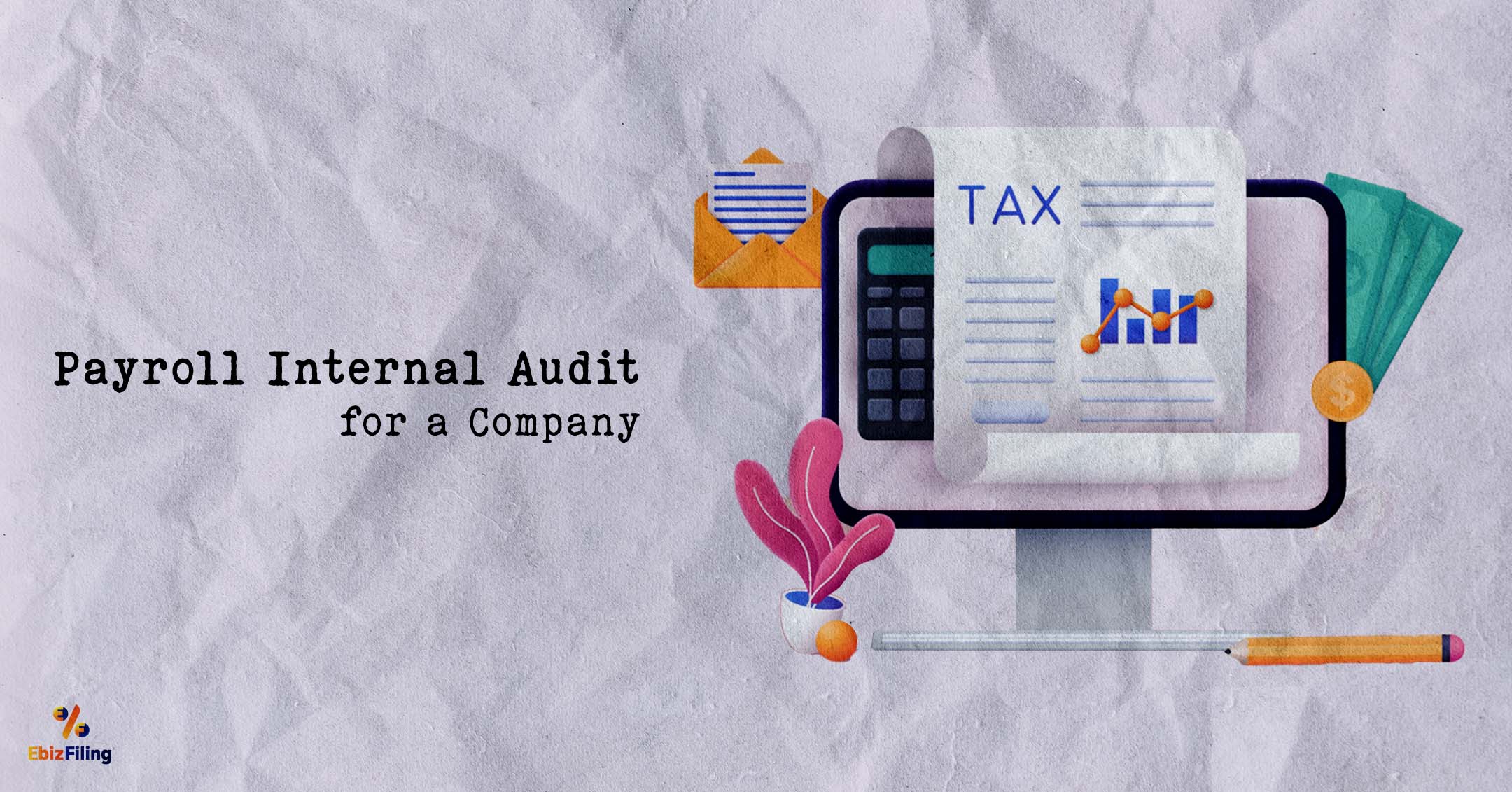
-
December 21, 2022
Payroll Audit: Meaning, Benefits, and Process to perform Internal Payroll Audit
Introduction
Payroll processing is arguably one of an employer’s most important responsibilities. It poses numerous challenges to HR and payroll professionals. One small error can ruin many things, including one’s reputation. Naturally, finding a reputable payroll service provider who will ensure that the organization’s niche requirements are met is critical. The first step, however, is to conduct regular payroll audits. This article will cover information on Internal Payroll Audit, the Benefits of Payroll Audit, and the Process to perform an Internal Payroll Audit of a Company.
Meaning of Payroll Audit of a Company
A payroll audit is an examination of a company’s payroll process in order to ensure its accuracy. Payroll audits look at things like active employees, pay rates, wages, and tax withholdings. A payroll audit should be performed at least once a year to ensure that your process is up to date and legally compliant.
Payroll audits are typically internal, meaning you or someone in your company conducts them. Internal audits can help you catch errors and avoid potential external audits later on.
Examine your payroll audit report after you have completed the review. Make any necessary changes for future payroll processing. You may also need to make changes retroactively. Common Payroll Issues that Internal Payroll Audit can Help You Solve:
- Overtime wages were incorrectly calculated.
- Employee hours and overtime are not tracked.
- Records that are incomplete or disorganised
- Misclassification of the number of employees
- Paying incorrect Tax rates
Benefits of an Internal Payroll Audit
Here are some of the reasons why you should conduct an internal payroll audit at least once a year, preferably twice.
-
It reveals flaws
During a payroll audit, you are more likely to discover payroll errors than outright fraud. Regularly checking for payroll errors also reduces the likelihood of breaching IT rules. Early detection of employment tax underpayments can save you money and time. Penalties accumulate on a monthly basis.
-
It helps in improving legal compliance
Comparing your payroll policies to central, state, and local government bodies is an essential part of the payroll audit process. Because overtime and state minimum wage laws change on a regular basis, studying compliance laws should always be on your payroll audit checklist.
-
It discourages payroll fraud
Payroll fraud affects small businesses disproportionately. Making it known that you perform a payroll account sweep every 6 or 12 months may prevent employees from attempting to defraud you.
The process to perform an Internal Payroll Audit of a Company
1. Time schedule for your Payroll Audit
Establish a time schedule for your payroll audit. This can be a single pay period or the entire year, particularly if you’re preparing year-end tax forms for your employees.
2. Examine employee data
This step of the payroll audit process necessitates communication between HR and payroll, as you want to ensure that the data provided by payroll matches the information provided by the employee. When the systems are linked, there is less chance of error than when sending spreadsheets back and forth. Check that everyone who is being paid is an active employee. Ensure that people who are on leave are properly compensated.
3. Examine the hours worked and the wages received
Check employee hours worked against time cards to ensure that they correspond to the amounts paid. This is especially true for hourly workers. If you notice a large number of employees with identical time cards, the Human Resources department may need to look into it. That could indicate that someone is tampering with the time cards.
4. Examine different types of compensation and variable pay
Overtime pay, bonuses, commissions, and piece-rate information must all be verified. If your employees are tipped, ensure they report their actual earnings for more accurate data. It is also important to check if your company offers vacation pay or shift differentials. Employees rely on this extra pay. Remember that paying too much can be just as stressful as paying too little. No one wants to be asked to repay the money because payroll made a mistake and paid them double the time when they should have received time and a half six months ago.
5. Examine and record unusual payroll transactions
This is also an area with a high risk of fraud. Consider signing bonuses, relocation compensation, back pay, and prior corrections. If you process reimbursements through payroll, double-check that this is also correct. It may be necessary to consult with Finance or whoever handles reimbursements. If an employee receives a large number of reimbursements but does not have a position that requires a lot of travel, this could be a sign of fraud.
6. Reconciliation of payroll
Examine your bank’s activity. Do your bank statements correspond to your payroll records? Do you have all direct deposit change requests properly documented? Getting payroll to deposit someone’s paycheck into the spammer’s bank account is a common scam these days. Check your documentation again.
7. Create a Payroll Audit Report
Create a payroll audit report and distribute it to those who require it. At the very least, this should include the heads of HR and Finance. Regular audit documentation can be useful if problems, such as a lawsuit, arise later.
8. Identify areas for improvement
Automation is becoming increasingly popular in payroll management, assisting in the elimination of inaccuracies and the reduction of errors. Data errors will be significantly reduced if you have an all-in-one HRIS, payroll system, or accounting software. Always look for ways to improve.
Take away
Payroll audits do more than just assist in determining an organization’s strengths and weaknesses. An audit can result in a more efficient payroll system and a better cost and resource centre. A payroll audit will show you where you stand in terms of payroll efficiency. And these consistent efforts result in an error-free and efficient payroll system, which ultimately improves the organization’s performance.
Payroll Setup and Processing
Setup your Payroll Process with Ebizfiling to make it run smoothly
About Ebizfiling -










Reviews
B David
09 Apr 2022I am a Sports Journalist from Bengaluru and a bit illiterate when it comes to doing business. But I did venture out and started a startup Alpharemy LIfestyles LLP and ran to auditers, lawyers and other experts for five years but could not close my LLP and paid huge amuunts for Compliance. Finally, I searched online and went to Ebizfiling. Initially, I was skeptical if the things will be completed on time, because the rates were almost 50 per cent less than what they asked in Bengaluru. Also I spoke to someone at the other end and I did not understand certain things. But after Deepak Sharma took over, the process was so smooth. He got the DSC done in minutes and he sent all the drafts requred to file Form 24. And I signed and sent them back with notary signatures and then he patiently cleared all my doubts on incorporation, and other compliance issues. Initially, I wanted to take an IEC for exporting hair and lifestyle products like wigs for cancer patients, he explained all about the process to get IEC. On top of it, he kept the deadline as today is the last date for filing LLP returns, Form 8 KYC and what not... All the headaches are solved and am peaceful, thanks to Deepak. Thank you sir. Much appreciated!
Harshit Gamit
19 Apr 2018My GST process was made easier with Ebizfiling. I really appreciate the hard work by your team. Keep up the same in the future. Good Luck!
Megharaj Dadhcih
24 Sep 2019Snehal done very gud job with supporting nature
February 14, 2026 By Dhruvi D
Delegrace Marks Milestone by Saving Over 10,000 Hours for Clients in the First Year Ahmedabad, India, January2026 In its first year of operations, Delegrace has achieved a milestone that reflects both its dedication and the trust placed by its […]
February 14, 2026 By Dhruvi D
Delegrace Expands Virtual Executive Assistant Services to Support Global Entrepreneurs and Businesses Ahmedabad, India – January 2026 Delegrace has announced the expansion of its Virtual Executive Assistant services, aimed at supporting entrepreneurs, startups, and small to mid-sized businesses managing […]
February 14, 2026 By Dhruvi D
Delegrace Launches Comprehensive Admin Support Services to Help Businesses Save Time and Work Smarter Ahmedabad, India – January 2026 Delegrace, a newly launched business support firm, has announced the introduction of its comprehensive admin support services aimed at helping […]